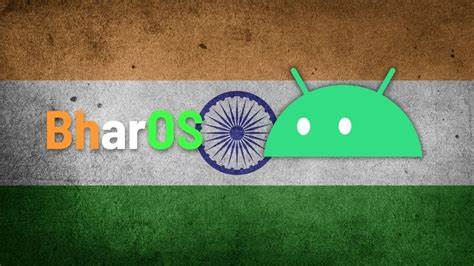Breification B24: What Is BharOS? India’s indigenous Android Competitor
8 years ago when our Prime Minister Narendra Modi spoke of Digital India for the first time, some of our friends scoffed at him, but today technocrats, innovators, industry and policymakers, and academic institutions Even after eight years, has accepted his vision. Union Minister Ashwini Vaishnav was also present with him on this occasion.
Google seems to be at the forefront of why a lot of OEMs and governments have tried and are trying to get rid of Google services. The Android monopoly and Google’s failure to adhere to rules and regulations structured by the Indian government led to university students creating BharOS, which is the subcontinent’s attempt to rule out Google from its own game.
What is BharOS
BharOS is an AOSP-based operating system that was created by students at IIT Madras. It’s a free and open-source OS project which is funded by the Indian government, created to reduce India’s dependence on foreign operating systems while promoting the make-in-India technology campaign. As you may have guessed by the description, it comes with zero preinstalled Google apps.
BharOS is an indigenous operating system, which focuses on privacy and security. Mobile operating system is a kind of software. As is the main interface on smartphones like Google's Android and Apple's iOS.
For those who’re unaware, AOSP stands for Android Open Source Project, which is the base project/operating system of all OEM’s current Android OSes and their skins, including Google’s Pixel UI. BharOS is not an operating system completely designed and developed by scratch but just compiled AOSP without Google apps. Much like LineageOS (Formerly CyanogenMod), which is also an open-source project, BharOS is just another AOSP OS.
BharOS alternatives
If you want to get serious about your privacy, you needn’t wait until BharOS’s release. There are already a few excellent Android-based OSes that you can install, provided your device supports them. They are:
- CalyxOS
- GrapheneOS
- LineageOS(No Gapps)
- /e/OS
There are lots of Linux-based OSes, too, like:
- Ubuntu Touch
- postmarketOS
- Plasma Mobile
- PureOS
- Sailfish OS
This adds to the learning curve, which not most users might be willing to go through. Hence, while BharOS could act as a competitor to Android, it will not replace Android unless the Indian government decides to ban Android with GApps.
BharOS supported devices
The developers do not have any information on supported devices. However, the OS is supposedly shown running on a Pixel 6a, during the meetings of the officials. The devs also aim to partner with OEMs to roll out the OS once it becomes stable enough to be released to the masses.
BharOS release date
There’s no info about the availability right now. BharOS is currently only available for organizations that need secure devices to protect the privacy of their users and the sensitive data of the company.
Working of BharOS: What does it do?

BharOS can be installed on commercial off-the-shelf handsets. In a statement earlier, IIT Madras said BharOS comes with no default apps. Kamakoti also told Moneycontrol that BharOS comes with security protocols such as root of trust and chain of trust, which means that the operating system is designed to stop working if any change is made to its software.
Additionally, BharOS will provide access to apps from organisation-specific Private App Store Services (PASS). "A PASS provides access to a curated list of apps that have been thoroughly vetted and have met certain security and privacy standards," a statement by IIT-Madras said.
What happened to BOSS (Bharat Operating System Solutions)?
A 2014 report by the Economic Times said that BOSS was "dying a slow death due lack of government support and investments". The report said updates to the OS were infrequent, described customer support as "inefficient." The report said there was a lack of coordination with hardware vendors for wider support across devices.
Now one has to wait and see what the fate of BharOS would be. As of now, the Indian government seems upbeat about BharOS capabilities and its potential.
On January 24, after testing the operating system, Union minister for electronics and information technology Ashwini Vaishnaw said: "The challenge begins today. I don't want to get tired. There will be lots of difficulties; and there are many people around the world who do not want a system like this to succeed. So we have to be very careful, cautious and persistent and we have to continue working on making it successful."
BharOS will not replace Android
Let’s be realistic here, like how Apple’s got most iOS users pinned inside the giant walled garden of an ecosystem, Google’s got Android users into a walled garden too. While Google’s walled garden may not be as beautiful as Apple’s, it will make things really hard for people switching to a de-googled ecosystem.
FAQs (Frequently Asked Questions)
1. How long did it take for the OS to be developed?
Kamakoti said that it took JandK Operations a year to develop the system.
2. So is it 100 percent indigenous?
Well, no. As mentioned earlier, BharOS is based on a Linux kernel, which is a part of the Linux operating system developed by a Finnish national. Several customisations have been done on top of the Linux kernel to create BharOS, Kamakoti said.
3. How different is it from Android?
Kamakoti told Moneycontrol that the Android operating system, too, is a fork of the original Linux distribution. Since, BharOS too uses the same software as a base for the operating system, it can be safely assumed that there will be similarities between BharOS and Android.
Where the two differ is in their offerings. While Android comes with a bunch of default apps such as Chrome, Google Maps and so on, BharOS has no default apps. Users can choose what to use.
4. What is the need for BharOS?
The IIT-Madras director said that there was need for a level playing field and fair competition in the app market.
Kamakoti said that in operating systems with default apps, there is no incentive for a user to try and use a different app whose functions will be similar to the one that is already present.
"Essentially, that's not fair right; there's no fair competition. Without default apps, I am giving a fair playground," he said. Kamakoti also described a mobile handset as being akin to a “digital home” and compared the presence of default apps to "strangers inside the digital home."
"So from a user, consumer perspective, I am not forced to have something which I do not want," Kamakoti said.
5. How will data be shared/stored on BharOS?
"Data belongs to the consumer and organisation," the IIT-Madras director said. An organization, he added, can decide on what data to collect, and that it would be under "your control and not somebody else".
6. How does one load BharOS on a handset?
BharOS can be loaded on any phone for which development manuals and other details are available, the IIT-Madras director said.
"The hardware vendor should come and share these development manuals," Kamakoti said. Earlier, on January 24, when BharOS was successfully tested, one of the phones on which the OS was installed was a Google Pixel.
7. Where is it being currently used?
As of now, BharOS is being provided to organisations that have stringent privacy and security requirements whose users handle sensitive information. However, Kamakoti said, based on the popularity and the demand for BharOS, the system can be easily scaled.
8. Is BharOS the first attempt by India to develop a homegrown OS?
No. Sixteen years ago, the Centre for Development of Advanced Computing (CDAC) developed Bharat Operating System Solutions (BOSS), another system derived from Linux, as a homegrown alternative to Microsoft Windows.
Conclusion
There will be lots of difficulties; and there are many people around the world who do not want a system like this to succeed. So we have to be very careful, cautious and persistent and we have to continue working on making it successful." The report said updates to the OS were infrequent, described customer support as "inefficient." The report said there was a lack of coordination with hardware vendors for wider support across devices.






